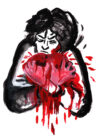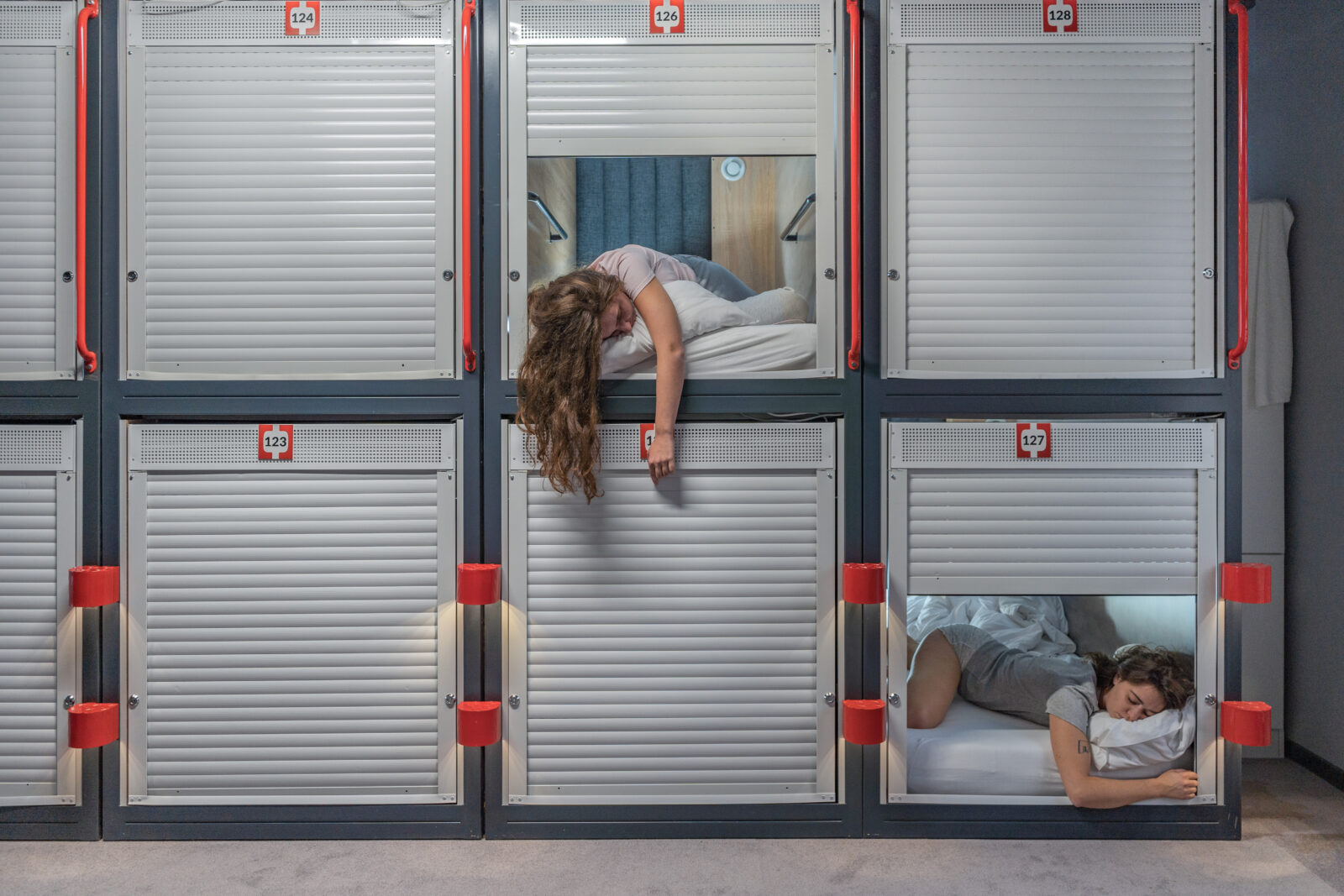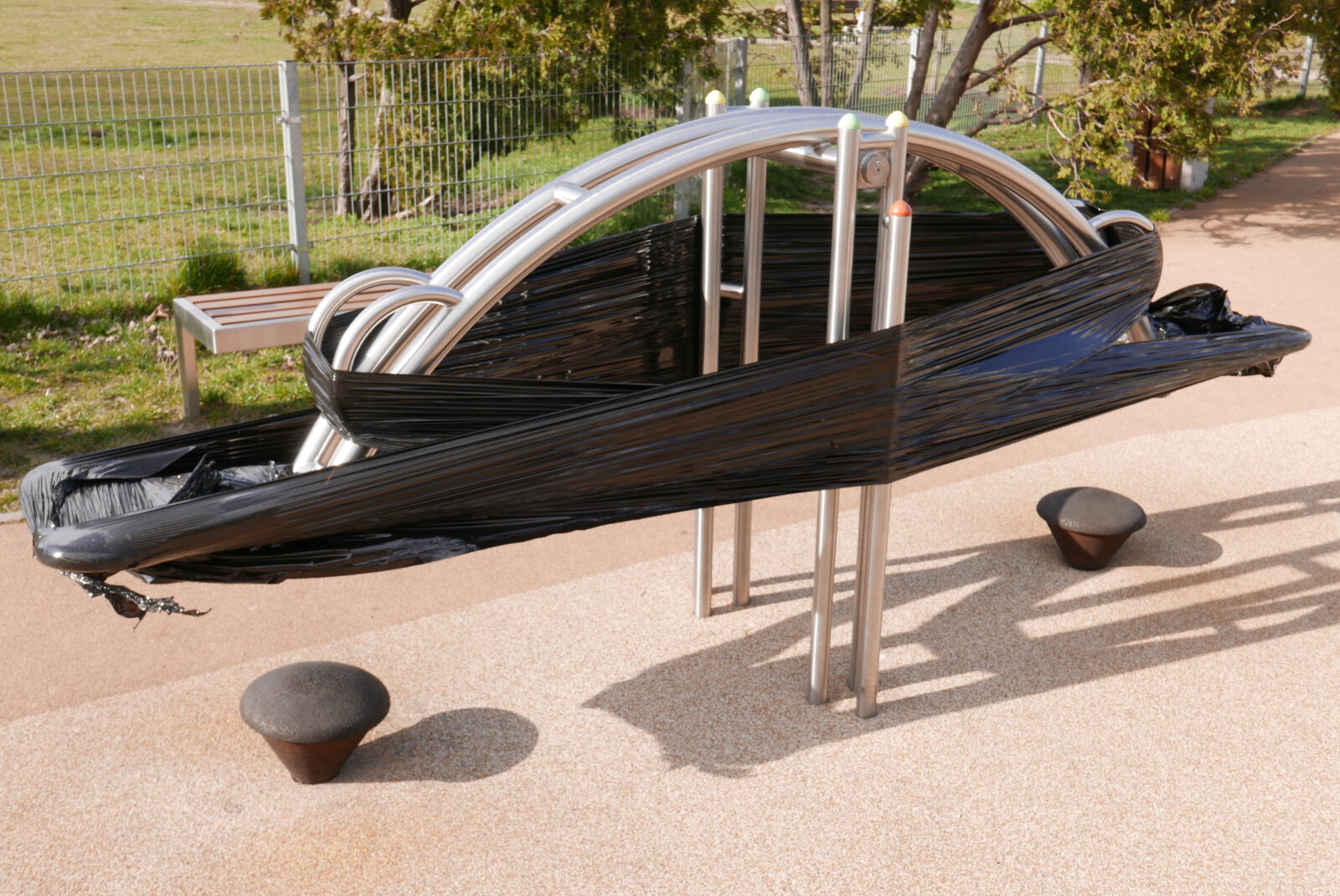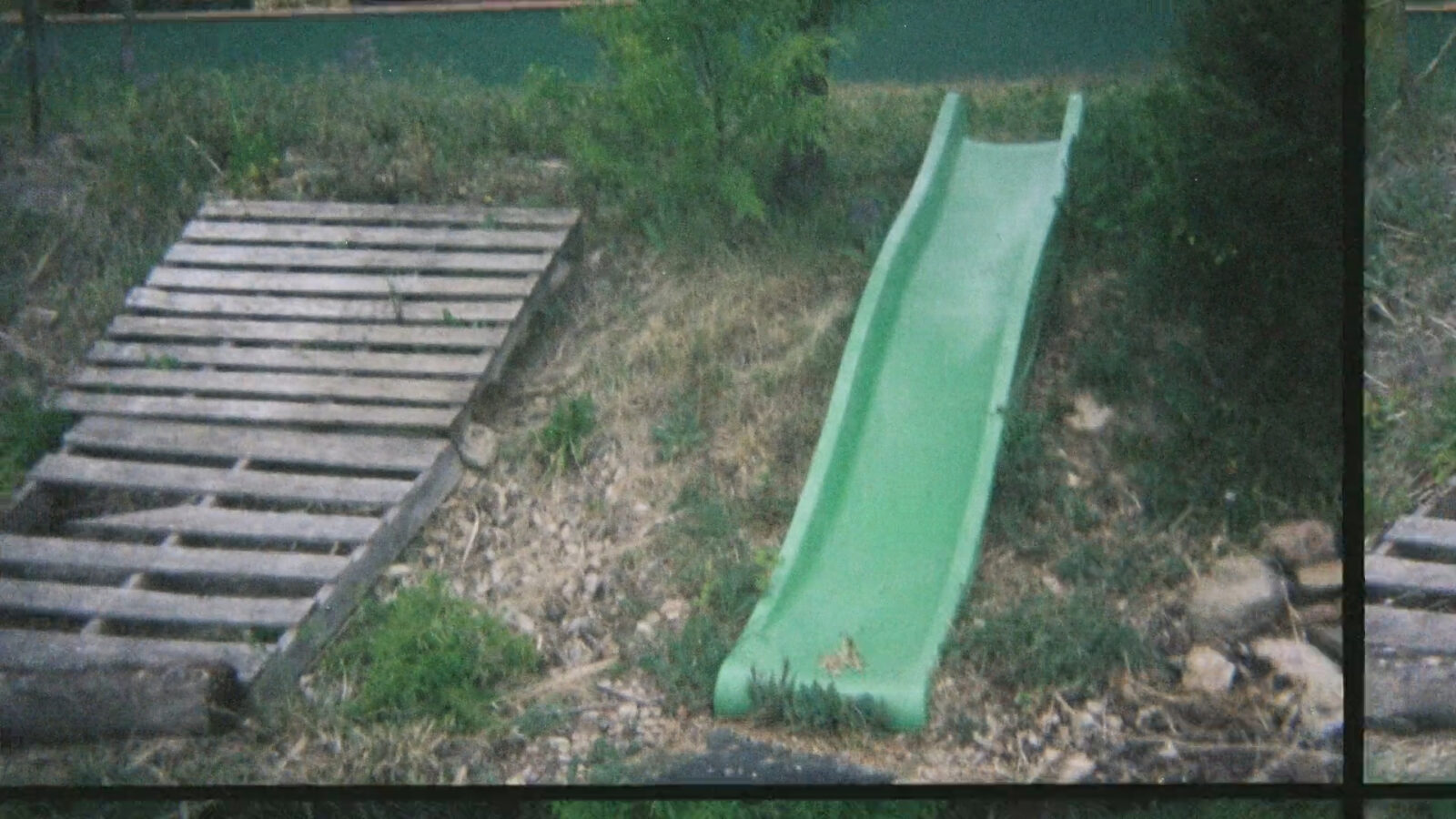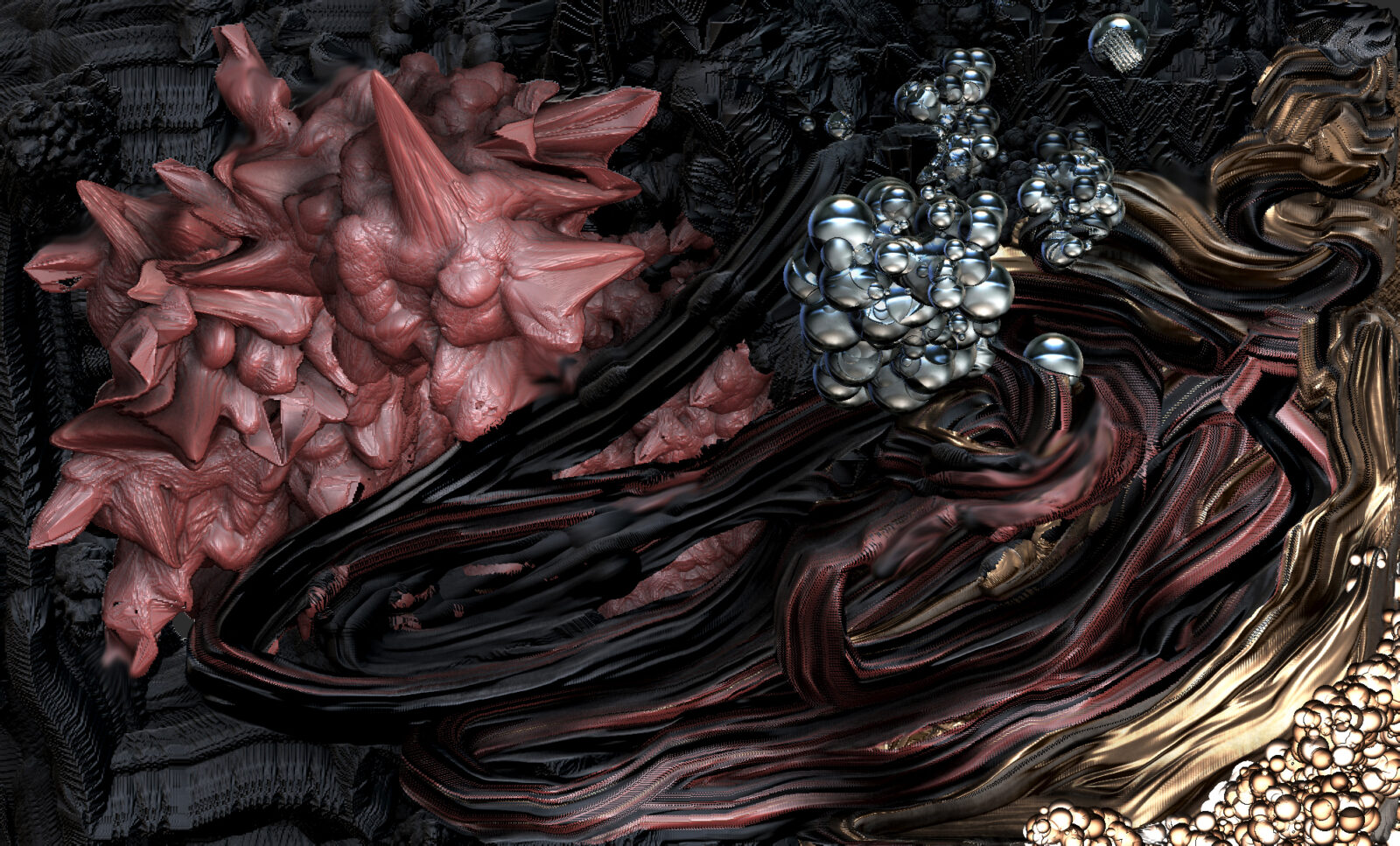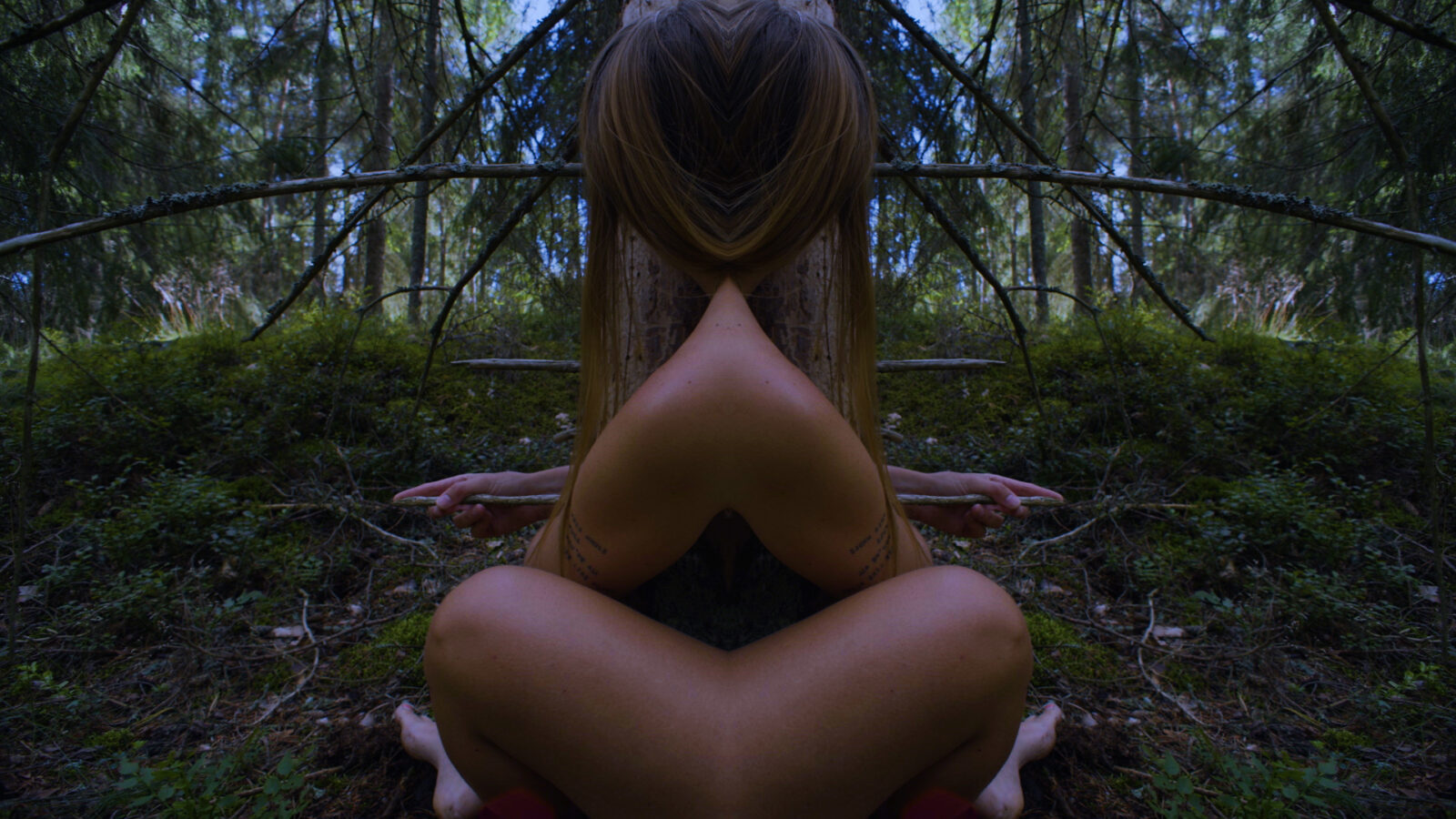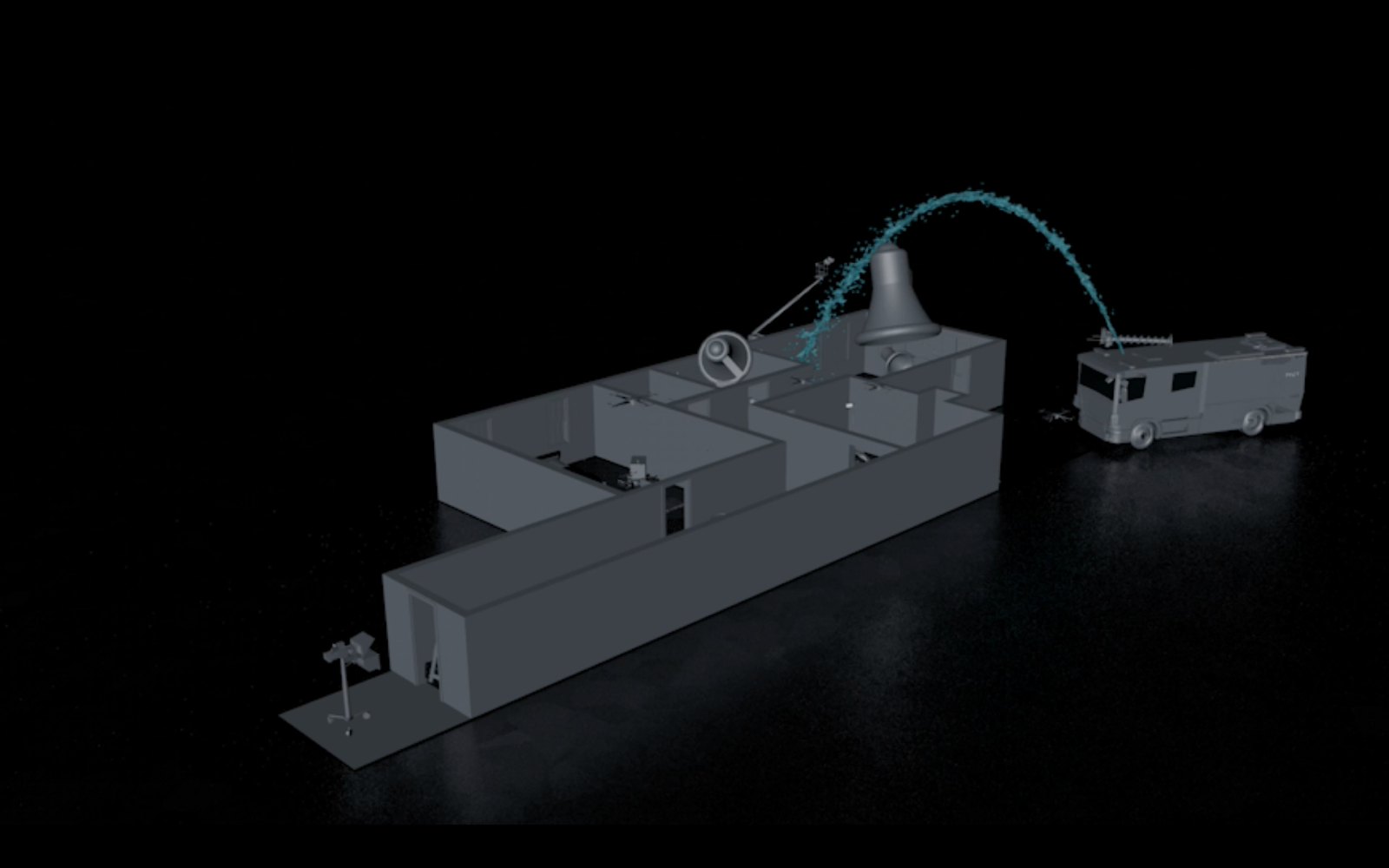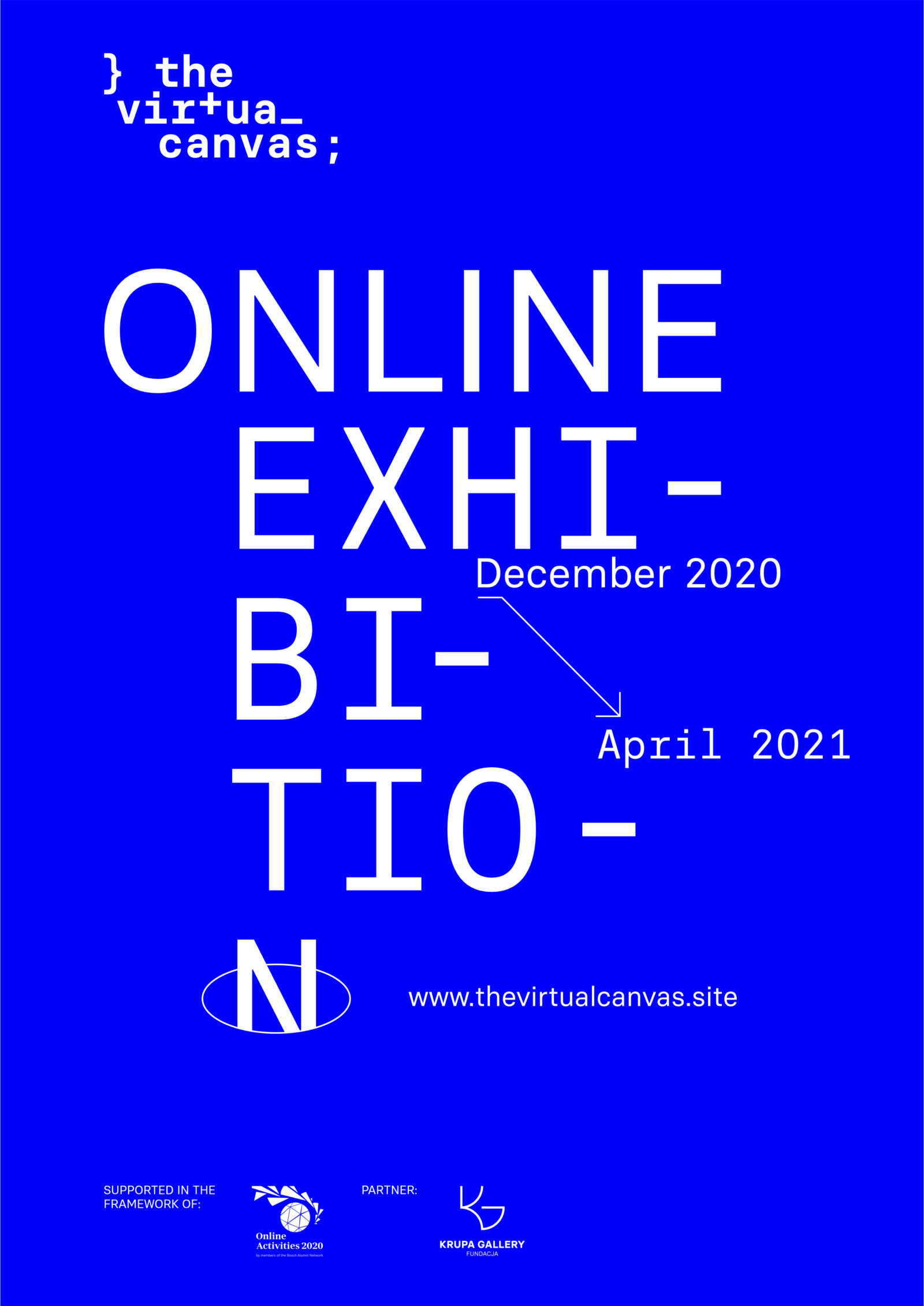ABOUT THE PROJECT
The project “The Virtual Canvas” is an online exhibition that develops between December 2020 and April 2021.
12 artists (and artistic collectives) from around the world have been invited to share their different perspectives, reflections, solutions and/or comments on the world’s crises – referring to both the past and future, to the recent lockdown(s) and the new reality of a pandemic.
Each artist receives a space within the website, which they will be able to add to, design, shape and arrange, treating the web as a canvas.
Every month a new artistic project will appear on “The Virtual Canvas” website responding to the previous artists’ pieces. The project is structured like a chain: initiated first by artists responding to the crises, the following artists will create pieces responding to this first input, as well as including their own perspective.
Each new contribution will develop the narrative further until a collective work is created, coloured by many voices singing in many mediums.
Various artistic projects collected in the virtual exhibition space are an attempt to build an artistic dialogue and share the insights of creatives experiencing the current crises at various latitudes.
This multi-voiced story will change and take different courses depending on the participating artists, on the present situation and on our present condition. As the project evolves, the platform becomes an international common diary and a testimony of the time.
CURATORIAL STATEMENT
The crises have exposed the structural inequalities within society, revealing the precarious imbalance at its heart. Yet a common factor uniting these disparities is a global state of suspension, uncertainty and anticipation – an atmosphere that seems to be typical of our time.
Can this global sense of uncertainty be utilized to rethink social structures? To achieve the unthinkable, one must un-think. Can this explosion of the status quo provide this opportunity? How can we (or is it possible to) emulate creation through forms of destruction?
Moreover, the physical restrictions of lockdown have more acutely exposed the new paradigm of mind/body/virtual, where the age-old distinction between the freedoms of the mind and limitations of the body has become transposed into the virtual. Now more than ever, it is the potential of the seemingly infinite space of the Internet that collides with the increasing number of physical barriers in the real world. Yet, which reality has a greater influence on our mind, its freedom, creative processes and artistic thought? Is our mind and creative thinking shaped more by limitations in the real, physical world or by virtual, seemingly endless opportunities?
ARTISTS
Why Quit (Karolina Balcer, Iwona Ogrodzka)
Renen
Post Noviki
Laura Ginès
Maess
Regev Amrani
Dimple B. Shah
Kino Manual (Aga Jarząb, Maciek Bączyk)
Hanna Wildow, Alva Willemark, Tony Karlsson Savci
Magda Franczak, Ludomir Franczak
Blanca Arias
Lara + Countervisions
SEE THE PROJECT’S WEBSITE > www.thevirtualcanvas.site
ABOUT THE ORGANISERS
Curators:
Megan Black has run several multidisciplinary art projects with a focus on collective creating in Berlin, as well as in Tbilisi and Gori in collaboration with MasterPeace in Georgia. She studied at the University of Oxford, where she graduated with the best performance of 2020 in German Language and Literature. Currently she is based in Berlin, working for the project space bi’bak and freelance editing, translating and creating.
Anna Stec is an art historian (University of Wrocław, Poland) and art curator. For many years she was associated with the Art Transparent Foundation; she was one of the curators of the SURVIVAL Art Review (between 2014 and 2018) and project coordinator and curator at the Mieszkanie Gepperta Gallery (2012- 2017). She has authored several texts on art published in magazines and exhibition catalogues. Currently she is based in Barcelona (Spain). She collaborates as an art curator and project coordinator with Krupa Gallery (Wrocław, Poland).
Katarzyna Mlynczak-Sachs holds a PhD in political science but she decided to follow her passion and abandon the academic life for culture management. She was responsible for the coordination of international relations in the context of Wroclaw 2016 European Capital of Culture. She has been involved in many international projects, such as amongst others the Wroclaw exhibition “Dispossession” during Venice Biennale 2015. Since 2017, she has been managing Krupa Gallery, an art space and concept born in Wroclaw to promote artists and engage audiences into artistic exhibitions.
The project is implemented with members of the Bosch Alumni Network and in cooperation with Krupa Gallery Foundation.



